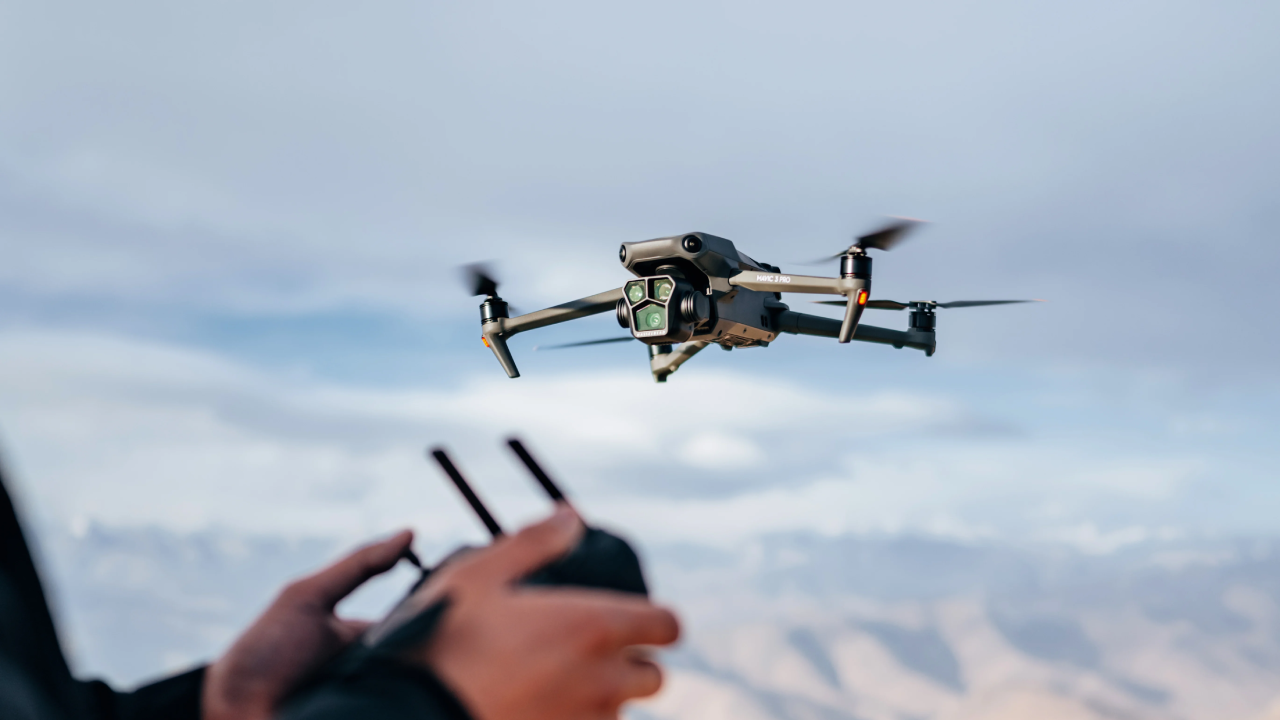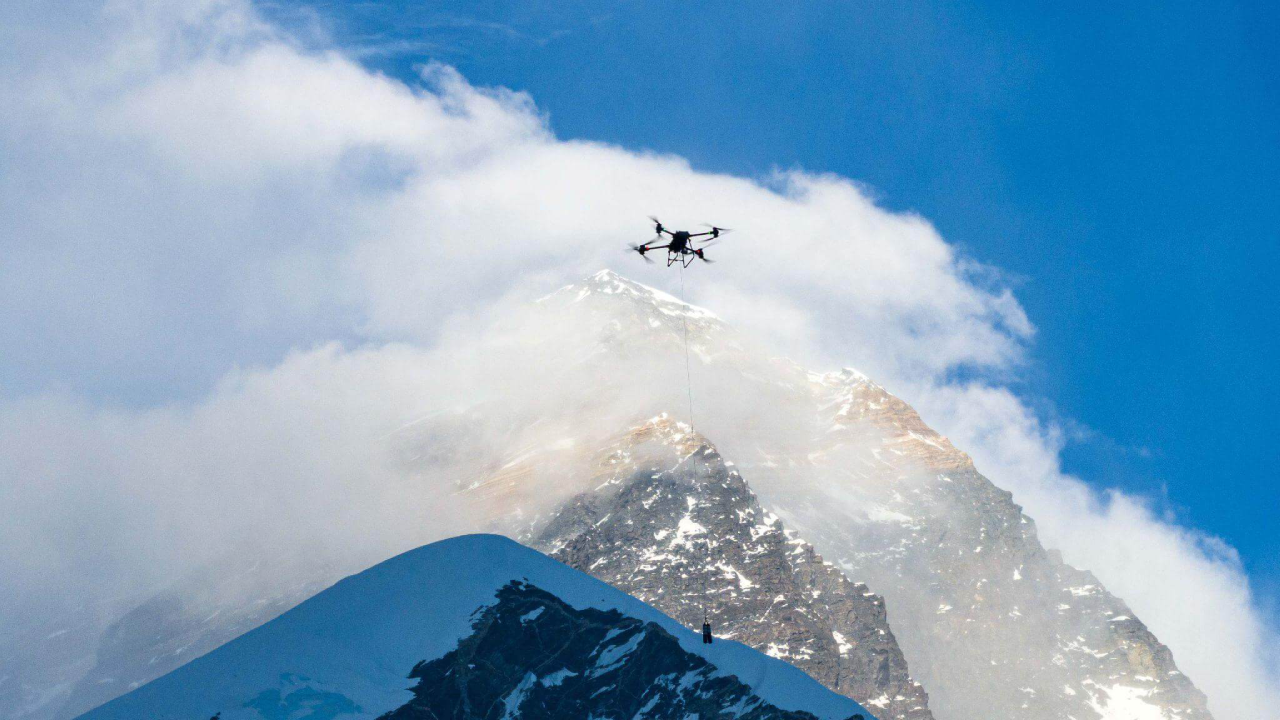
Image Credit: DJI
On June 14th, the US House of Representatives passed a bill that would ban the sale or use of DJI products in the United States. Known as the Countering CCP Drones Act, the bill has gone on to the senate as part of discussions around defense spending. While the contention around DJI products is mostly focused on national security concerns, the implications of a complete ban on all DJI products are far-reaching, particularly for AV applications. No other company in the world has the brand presence that DJI does in drone use, possibly indicating a large, impending void in the drone market.
Da Jiang Innovations, otherwise known as DJI, is a Chinese technology manufacturer based out of Shenzhen, with drones and drone peripherals as their primary product. Founded in 2009, DJI quickly became the brand of choice within the early stages of the drone market, capitalizing on that success by arranging strategic partnerships throughout media and entertainment industries. This further elevated DJI's profile, earning them an Emmy for Technology and Engineering in 2017. For buyers, DJI represented an approachable, cost-conscious option to the world of drones, with an extensive manufacturing and logistics apparatus to back it up. By 2021, DJI had achieved an unprecedented 76% global market share. DJI's product line and capabilities continued to expand, from micro drones to professional-grade, cinematic recording rigs while diversifying the industries they worked with.
DJI drones hold favor with most users due to their affordability and ease of use
Drones becoming more affordable and obtainable came with an unintended consequence: Military applications. DJI drones have been used in reconnaissance applications in global conflicts, representing a major concern the US government has had around the presence of electronic surveillance in Chinese-made products. Exacerbating this concern is the use of DJI drones as improvised guided munitions on the battlefield; within recent years, DJI drones have become the literal weapon of choice by armed groups, favored for their affordability and ease of use when combined with an explosive payload.
Cybersecurity tensions between the US and China aren't new; as recently as April 2024, the US government mandated the sale of TikTok for data privacy concerns, on the heels of charging seven hackers associated with the Chinese government on cyber espionage grounds. Prior to these charges, the US issued a blanket sales ban against Chinese telecommunications companies Huawei and ZTE in 2022, again citing cybersecurity risks as the reason behind the ruling. In most of these rulings, the legal precedent has centered around the perceived risk that the Chinese government may utilize "backdoors" built into Chinese-made technology as a part of Chinese government surveillance programs.

DJI drones recently achieved the world's first drone delivery to Mount Everest. Credit: DJI
In response to this new legislation, DJI has published a "Get the Facts" article, addressing the critical points surrounding these security concerns. In it, DJI asserts that it operates under the local laws of the country that it does business in, that users can remove themselves from networks with a Local Data Mode, and that the company deliberately does not manufacture military equipment. Despite this rebuttal, the legislation has moved forward since its inception, potentially resulting in significant gaps in the drone market.
DJI's significant presence in the drone market is apparent, and their product line continues to expand with the success of their lavalier microphone. Media creators across all industries have expressed worry, noting that DJI drones make up a large part of the market for a reason. DJI drones hold multiple spots in most recommendations, from media creators to curated editorial lists, and many have particular apprehension that US-domestic drone manufacturers simply cannot compete with the scale, quality and affordability offered by DJI drones. Whether or not the legislation passes remains to be seen, but the implications are immense.
Recommended Content
The Immersive Industry Doesn’t Have a Creativity Problem. It Has an Operating Model Problem.






Please sign in or register for FREE
If you are a registered user on AVIXA Xchange, please sign in